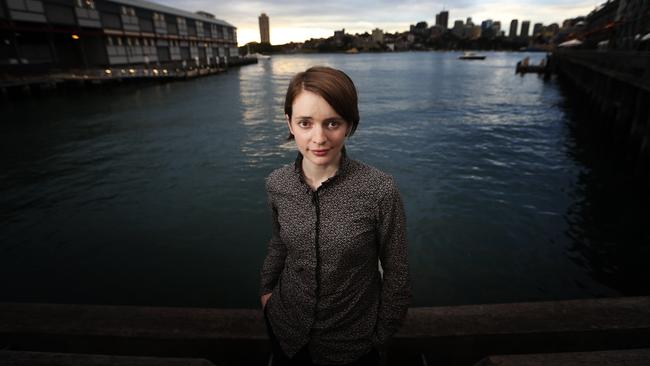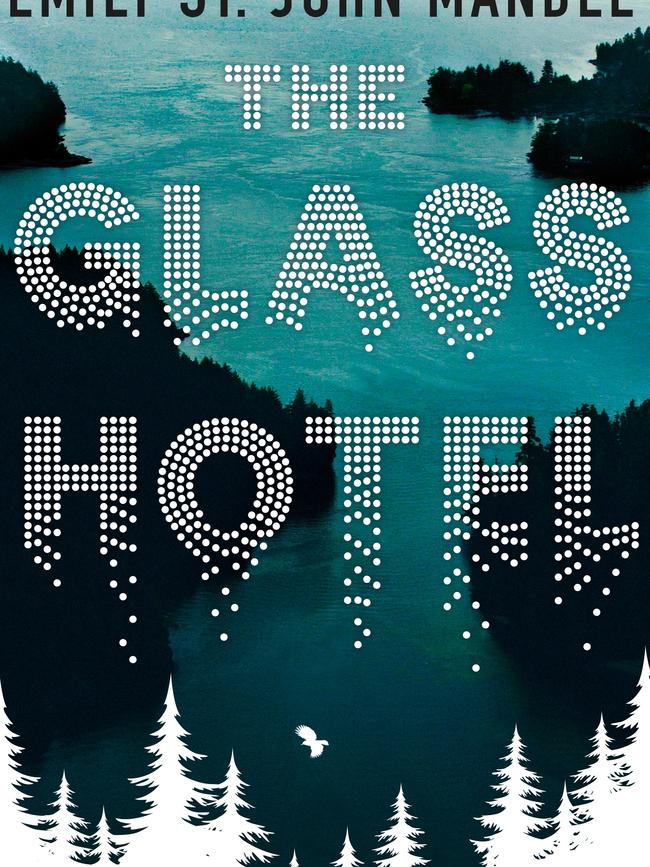Emily St John Mandel’s The Glass Hotel is a tale of our times
Canadian author Emily St John Mandel’s new novel, The Glass Hotel, makes for strange reading at this deeply unsettling moment.

Canadian author Emily St John Mandel shot to prominence with her 2014 novel, Station Eleven, which imagined the effects of a pandemic that wipes out most of the world’s population.
A fascinating blend of dystopian tropes and pastoral elements, shot through with echoes of Boccaccio, medieval morality plays and a metafictional thread involving a graphic novel written long before the outbreak, its heady brew of competing elements was held in place by the understated elegance of Mandel’s writing and structural control.
From the vantage point of 2020, Station Eleven looks prescient. Rereading it while COVID-19 sweeps the globe makes for an eerie experience. Yet in some ways Mandel’s new novel, The Glass Hotel, makes for even stranger reading at this deeply unsettling moment.
Moving between 1994 and 2018, it traces the fates of a half-dozen characters orbiting around Vincent, a young woman from the town of Caiette on the remote northern end of Vancouver Island.
Some of them — Vincent’s addict half-brother Paul; billionaire financier Jonathan Alkatis — are close to her. Others, such as shipping expert Leon Prevant or hotel night manager Walter, are more tangential. Yet as the narrative unfolds, their connections to each other and to Vincent gradually are revealed.

The book hinges on two mysteries. The first is revealed at the outset when, in 2018, Vincent falls from the side of a ship into the ocean. As she surrenders to the freezing water, images flash through her mind: standing by the shore as a 13-year-old; Paul; her first meeting with the third mate and the “something” that struck her about him.
We then flash back to 1999, when Paul, 23 and fresh out of rehab, is trying to begin again, a process that quickly goes horribly wrong.
Along the way we meet a younger version of Vincent and learn something of her life: the disappearance of her mother (who named her in honour of Edna St Vincent Millay) while kayaking when Vincent was 13, and her father’s subsequent decision to send her to Vancouver to live with his sister.
The novel then flashes forward again, to 2005. Vincent is now a bartender at the Hotel Caiette, a high-end establishment that allows the wealthy to commune with nature (although as one staff member slyly observes, “very few people who go to the wilderness actually want to experience the wilderness … they just want to look at it, ideally through the window of a luxury hotel. They want to be wilderness-adjacent”).
It is in the Hotel Caiette that we encounter several more of the characters connected to Vincent and the second mystery: somebody scrawls “Why don’t you swallow broken glass” on one of the windows the wealthy use as a vantage point to observe the wilderness.
The question is not so much who did it, but why.
Paul has recently taken a job at the hotel, working in the lobby. When the hotel owner, Alkatis, meets Vincent, he soon proposes she join him as his not-quite-wife.
The puzzlebox structure of this novel never feels anything less than entirely natural. Yet as it wends its way onward it becomes clear Alkatis’s business is not all that it seems.
The author’s fascination with catastrophe, and how its antecedents and consequences shadow and transform lives, partly manifests here in a gorgeous evocation of the trappings of life in what Vincent comes to call “the land of money”.
Read amid the COVID-19 disaster and the financial crisis it has engendered, these concerns lend The Glass Hotel an elegiac air. Yet Mandel’s real achievement lies less in the skill with which she captures a world that is already slipping away and more in the delicacy with which she reminds us of the other lives that shadow all of us, whether in the form of ghosts, or an imaginary counterlife. Perhaps this also explains one of the novel’s most intriguing details: the appearance of two characters from Station Eleven, living lives quite different to those Mandel imagined for them in that book. The result is a book that is elusive and affecting, mysterious and beautiful — and relevant to the times in which we are living.
James Bradley’s new novel, Ghost Species, will be published next month.
The Glass Hotel
By Emily St John Mandel
Picador, 256pp, $29.99



To join the conversation, please log in. Don't have an account? Register
Join the conversation, you are commenting as Logout